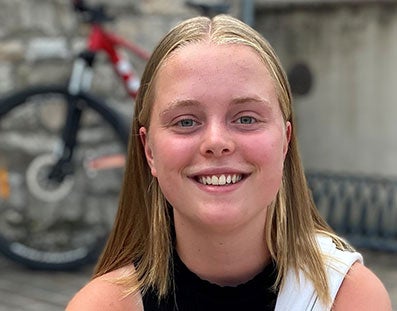The study programme
With the bachelor's in Business Analytics, you will use the power of mathematics, data analysis, computer science and business to improve the results of companies, government, non-profit organisations, municipalities and services. During the programme, there are three main areas of study:
- Data Analysis/Mathematics (50%, statistics & optimisation)
- Computer Science (35%, artificial intelligence & programming)
- Business (15%, organisation, finance & logistics)
Theory and projects
These areas of study are interspersed with challenging real-life projects of renowned organisations in small project groups. You apply theory and work immediately on a solution and final product for the company. You will develop your communication and consulting skills and make regular presentations. You will receive lectures from highly experienced lecturers and guest speakers from the business world, and you will also regularly visit companies such as IBM and Deloitte yourself to see what the possibilities are after your studies.
Solutions to complex questions of organisations
Business Analytics is an interdisciplinary degree in which you can explore what suits you best. For example, you will work on the following issues:
- How do you reduce ambulance response times to save more lives?
- Can you predict cancellations of hotel bookings so you know how many extra rooms to book?
- Can you predict which news articles will be most popular based on a dataset from an online news website?
The Business Analytics course has been around for 30 years and has good connections with alumni, companies and organisations. Will you become a sought-after professional for any potential employer? Make Business Analytics your gateway to an (international) career.
Are you curious about the differences between the programmes Econometrics and Operations Research and Econometrics and Data Science? Then view this comparison chart!
The programme starts in September.
